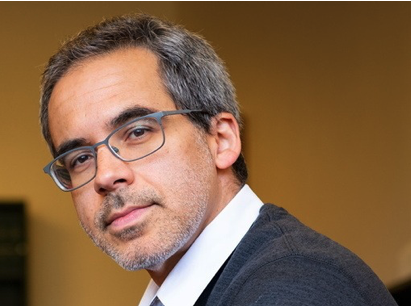
Joel Colon-Rios flytur erindi á vegum rannsóknarverkefnisins Lýðræðisleg stjórnarskrárgerð. Erindið verður flutt á ensku og nefnist á frummálinu Constitutionalism and Democracy: A Tension Revisited
Lengi var togsreyta stjórnarskrárhyggju og lýðræðis. Í samtímanum er hinsvegar venjulega litið á þetta sem tvær hliðar á sama peningi. Þessu jafnvægi er nú ógnað í ýmsum lýðræðisríkjum af aukinni skautun og populískri forræðishyggju. Í erindinu, sem nefnist Constitutionalism and Democracy: A Tension Revisited, færir Colon-Rios rök fyrir því að við endurvekjum umræðuna um tilgang stjórnarskrár og lýðræðis með það fyrir augum að auka áhrif almennings.
Joel Colón-Ríos er prófessor í lögfræði Victoria University í Wellington og er meðal annars höfundur bókana: Constituent Power and the Law (OUP 2020) og Weak Constitutionalism: Democratic Legitimacy and the Question of Constituent Power (Routledge 2012).
Fyrirlesturinn fer fram í Auðarsal í Veröld – húsi Vigdísar, þriðjudaginn 25. október kl. 16:00-18:00.
Hér má lesa úrdráttinn
Constitutionalism and Democracy: A Tension Revisited
Abstract
There is an old debate in constitutional theory about the relationship between constitutionalism and democracy. The debate is a result of an unresolved tension between these ideals: constitutionalism has historically been conceived as been about the limitation of political power through constitutional forms, and democracy about the unlimited right of peoples to live under any rules (constitutions included) they want. During the 18th and 19th centuries, the debate was largely about whether present generations should be bound to constitutions adopted in the distant past. In the 20th century, it focused on the question of whether giving judges the power of reviewing the constitutionality of legislation and of striking down offending statutes was consistent with democracy. These two debates were largely resolved in favour of constitutionalism: democracy and constitutionalism were usually presented as two sides of the same coin, as one incapable of existing without the other.
In other words, there was no need of re-balancing these ideals: no major changes in our institutions were necessary, novel forms of democratic governance and of constitutional re-making would simply put constitutional rights at risk. The present wave of authoritarianism, which involves a crisis of both democracy and constitutionalism, shows, at the same time, the shortcomings and renewed relevance of that debate. On the one hand, discussions about the democratic legitimacy of judicial review of legislation now seem beside the point. On the other, a re-balancing of the relationship between these two ideals through the establishment of mechanisms that allow for the popular contestation of traditional constitutional forms appears more urgent than ever. Proceeding in this way requires us to revisit the early stages of the debate (where this type of discussion was present) and, I will suggest, to reconceive constitutions’ purpose as that of facilitating popular self-government.

























